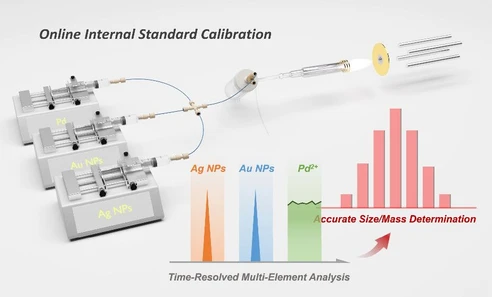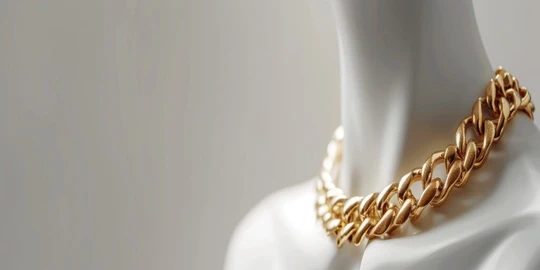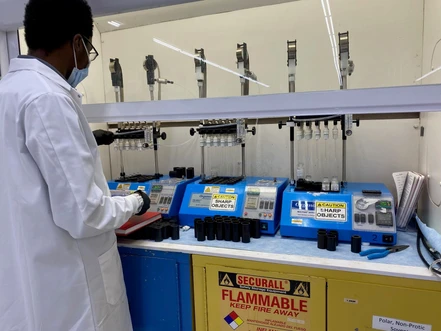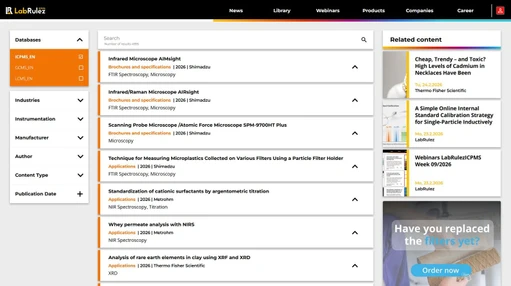Karel Šmejkal: I still find research an exciting game

- Photo: Magazín M / Radek Miča: Karel Šmejkal
- Video: Centre for Natural Products Discovery LJMU: CNPD CONFERENCE 2021 Prof Šmejkal "Prenylated phenolics as lead compounds for Covid-19 therapeutics"
For 24 years, Karel Šmejkal of the Faculty of Pharmacy has focused on pharmacognosy and phytochemistry. This year he received the MU Rector’s Award for long-term excellence in research in the field of natural sciences and medicine.
How did you feel when you accepted the award?
I was happy of course, it’s an important award. But at the same time, I was a bit surprised to find out that I had been recognised for my long-term contribution. It almost felt like I was about to retire! But I hope I haven’t said the last word in my research. I’m definitely not quitting, on the contrary – I have many new challenges ahead of me. There is still room for progress and training in new technologies.
 Magazín M / Radek Miča: Karel Šmejkal
Magazín M / Radek Miča: Karel Šmejkal
You specialise mainly in the study of natural substances. Why did they become the object of your interest?
It started at university when I was looking for a topic for my diploma thesis. I originally wanted to focus on pharmacology, but there were a lot of people interested in that topic, so I ended up with natural substances. I dug deeper into it and thought that was where the interesting stuff was. And it hasn’t really left me to this day. Since ancient times, medicinal and poisonous plants have served as a source of various medicinal applications and diverse uses. In the last 30 years, natural substances have been involved in the development and introduction of about 30 per cent of new medicines. Nature is very powerful in this respect. It's fascinating how every plant contains many specific substances that can be extracted, broken down and studied. The process of extracting natural substances is very interesting and adventurous. The more you get into it, the more you enjoy it. A friend of mine once told me that I was chasing coloured water from flask to flask for a living, and he was basically right.
I originally wanted to focus on pharmacology, but there were a lot of people interested in that topic, so I ended up with natural substances. I dug deeper into it and thought that was where the interesting stuff was. And it hasn’t really left me to this day.
The PSE Trends in Natural Products 2024 pharmaceutical conference, which your faculty is organising in Brno from 21 to 24 May, will focus on the natural sciences. How prestigious is this event?
It is a travelling conference that has been held in Paris and Crete in previous years. We applied to host the event before Covid-19 and now it has finally come to fruition. The event was sponsored by the Rector of Masaryk University and traditionally by the Phytochemical Society of Europe, of which I am a member and have been a board member in previous years. Coincidentally, this was the first international conference in 2008 that I actively participated in. This event is mainly aimed at young assistant professors and postgraduate students, giving them the opportunity to present their research to an international audience. It is a unique opportunity for supervisors and professors to share information and experience with young people in the field. We have 140 registered participants, and the programme will include around 50 presentations by students, PhD students and other distinguished guests. The main topic will be new developments in the field and the use of natural products in phytochemistry, pharmacy, food industry and cosmetics.
Your secondary focus is on bioassays of natural products, especially their anti-cancer, anti-inflammatory and anti-bacterial effects. What results have you achieved in this area?
Our long-term focus has been on the effect of natural products on chronic inflammatory diseases, in particular the study of plant-derived polyphenols and their potential for practical application. We have isolated a number of substances called prenylated phenolics, e.g. from plants of the Moraceae family, which have anti-inflammatory properties comparable to reference corticosteroids. We are currently investigating modifications of such compounds to improve their solubility and bioavailability and thus potential practical applications. We have also investigated the effects of compounds on tumour growth. In this area, we have mainly collaborated with colleagues from Slovakia. With colleagues from the Faculty of Science and the Faculty of Medicine, we have worked on the problem of multidrug resistance (MDR), which is a common problem in the treatment of cancer with chemotherapy.
For the first time this academic year, the Faculty of Pharmacy is offering a new Bachelor’s degree in Cosmetic Products. What feedback have you received?
We have been pleasantly surprised by the level of interest, which is expected to continue for years to come. We have already seen the number of applications for the next academic year almost double. It’s always great when we can choose from among the applicants and select the best candidates. But there has been a consistently high demand for our faculty for many years. Indeed, the pharmaceutical market is large and unsaturated, so the job prospects for our Master’s graduates are excellent, with a 99.9 per cent success rate. Most graduates go on to work in pharmacies, but there are also opportunities as clinical pharmacists, in research, in the pharmaceutical industry or in regulatory bodies.
 Magazín M / Radek Miča: Karel Šmejkal: I still find research an exciting game.
Magazín M / Radek Miča: Karel Šmejkal: I still find research an exciting game.
How much will the Faculty’s move to the MUNI BioPharma Hub on the Bohunice campus contribute to additional opportunities for students?
This is of course an excellent opportunity, as we will have modern facilities fully equipped with everything we need. It will be especially great that all three faculties and other associated institutes of Masaryk University – the Faculties of Medicine, Science and Pharmacy, CEITEC and RECETOX – will be under one roof on the campus. We will be even more closely linked and have more opportunities for cooperation. The premises will also include a GMP laboratory, which will further strengthen the possibilities of scientific research and its practical application.
You also serve as Vice-Dean for International Relations and Internationalisation. How is the Faculty’s involvement in international projects going?
We greatly benefit in this respect from our internal Support for Strategic Management Projects programme, which I believe is the most useful programme of its kind at Masaryk University in terms of internationalisation. Thanks to it, we can welcome many international researchers and visiting professors to the Faculty of Pharmacy. Every semester we have about 10 experts from abroad who give lectures mainly to Master’s students. This is a great way to establish international contacts and cooperation.
Being Vice-Dean of the Faculty involves a lot of administrative and office work. How do you balance this with your research?
I try to keep in touch with the field. I continue to lecture, for example in the Toxicology of Natural Compounds course, which I am really passionate about. And I’m still active in the lab, helping to write new grant projects. I don’t want to lose the joy that has been with me since I started doing science. For me, research is still an exciting game where you’re playing with sophisticated, expensive instruments and gadgets. What I enjoy most is the contrast between precise and detailed research work and a certain playfulness that gives it a different perspective.




